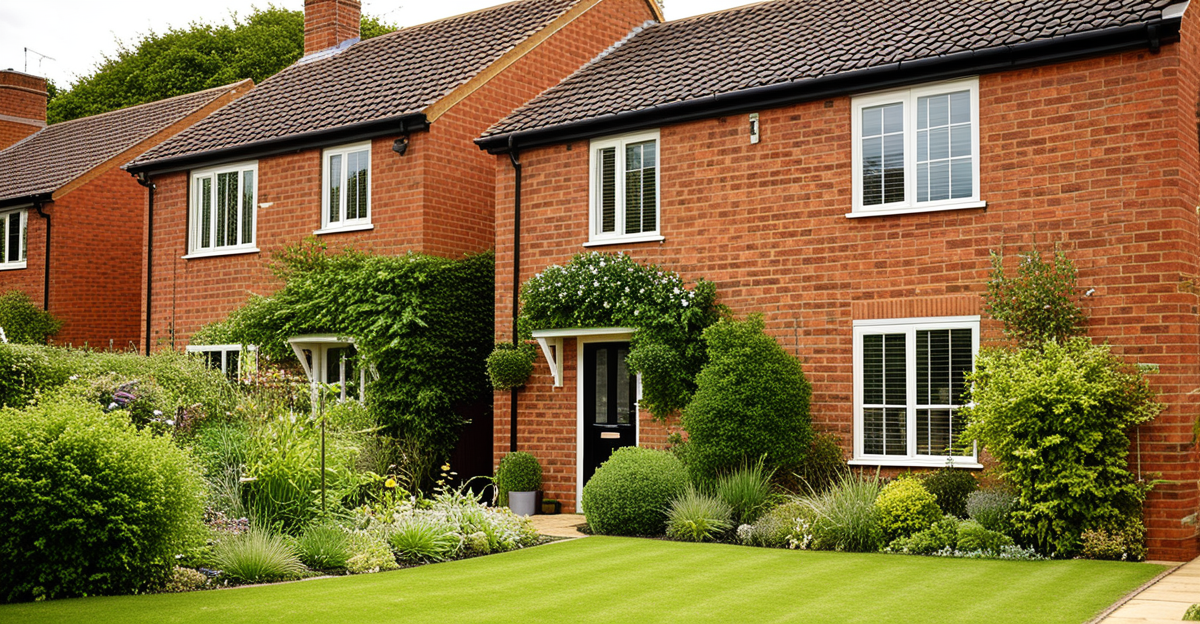Essential Eco-Friendly Upgrades for UK Homes
Eco-friendly home improvements UK are becoming increasingly vital as homeowners seek to reduce energy bills and their environmental footprint. These upgrades focus on enhancing energy efficiency UK and embracing sustainable home improvements tailored specifically for the UK’s climate and housing stock.
The impact of these targeted improvements is significant, offering measurable benefits including reduced carbon emissions and long-term cost savings. Some of the most effective upgrades encompass enhancing insulation, installing renewable energy systems, improving heating efficiency, and upgrading windows and doors.
Also read : How Can We Transform Our Living Space to Reflect UK Heritage?
The UK’s unique weather patterns—characterized by frequent rainfall and cooler temperatures—make insulation and draught proofing essential. Upgrades such as loft insulation and wall insulation conserve warmth, reducing heating demands and associated energy costs. Similarly, incorporating energy-efficient upgrades UK, such as solar panels and heat pumps, harness renewable resources adapted to local conditions.
In summary, investing in eco-friendly home improvements UK aligns environmental stewardship with financial benefits, delivering lower utility bills and enhancing comfort. These sustainable home improvements not only ease the strain on natural resources but also increase property value and resilience to future energy price changes.
Topic to read : What are innovative ideas for a sustainable UK garden?
Optimising Insulation for UK Properties
Insulation is a cornerstone of energy efficiency UK, with home insulation UK solutions greatly enhancing comfort and reducing energy costs. In UK homes, the most effective types include loft insulation, wall insulation, and floor insulation. Loft insulation is especially important given the typical heat loss through uninsulated roofs. Adding insulation in loft spaces can reduce heating bills by retaining warmth during cold months. Wall insulation, either cavity or solid wall, addresses heat loss through the large surface areas of UK houses, particularly older properties. Floor insulation further minimizes heat escape, particularly in homes with suspended timber floors.
The impact of these upgrades is substantial. Properly installed insulation lowers energy consumption by reducing demand for heating, which directly decreases utility bills and carbon emissions. The insulation’s effectiveness depends on the type and quality of material used, but overall energy savings can reach up to 30%. Installation costs vary: loft insulation might cost a few hundred pounds, while solid wall insulation can be more expensive due to labor and materials. However, government schemes and grants are often available to offset these costs, supporting more homeowners in adopting these sustainable home improvements.
For a successful installation, it is advisable to consult accredited installers who understand the particular needs of UK housing stock and climate. With growing emphasis on eco-friendly home improvements UK, investing in comprehensive insulation upgrades not only enhances energy efficiency UK but also contributes meaningfully to long-term sustainability goals.
Solar Energy Solutions for Residential Properties
The adoption of solar panels UK is a pivotal step in energy-efficient upgrades UK for homeowners seeking sustainable home improvements. Solar photovoltaic (PV) panels are well suited to the UK’s climate despite the region’s variable sunlight. Modern PV technology performs effectively even in overcast conditions common throughout the year, generating clean electricity that reduces dependence on grid sources.
Home solar energy systems not only lower utility bills by producing free electricity but also contribute to lowering household carbon emissions, reinforcing sustainability goals. Additionally, solar thermal systems provide a renewable way to supply hot water, complementing broader eco-friendly home improvements UK.
Assessing roof suitability is the first practical step for renewable energy installation. South-facing roofs with minimal shading optimize solar energy capture. The installation process involves professional site surveys, system design, and certification to ensure compliance with UK standards.
Financially, homeowners can benefit from incentives such as feed-in tariffs (FiTs) and the Smart Export Guarantee (SEG), which reward surplus electricity generation. These incentives improve the return on investment and encourage more widespread adoption.
In summary, integrating solar panels UK into residential properties offers substantial environmental and economic benefits, making it a cornerstone of sustainable home improvements tailored for UK conditions.
Essential Eco-Friendly Upgrades for UK Homes
Eco-friendly home improvements UK focus on practical upgrades that significantly enhance sustainability while adapting to the UK’s specific climate and housing characteristics. These improvements prioritize energy-efficient upgrades UK such as insulation enhancement, renewable energy adoption, and heating system modernization to deliver measurable cost savings and reduce environmental impact.
UK homes often face damp conditions and cooler temperatures, influencing the choice of upgrades. For example, sustainable home improvements like advanced insulation and draught-proofing are essential to retain warmth and reduce heating demand. Enhancements such as double glazing windows and energy-efficient doors, tailored for the UK weather, further prevent heat loss. Additionally, integrating renewable technologies such as solar panels or heat pumps complements these measures, offering a holistic approach to energy efficiency.
The benefits of these eco-friendly home improvements UK extend beyond immediate reductions in energy use. They contribute to lowering carbon emissions, support long-term affordability through reduced energy bills, and increase property value. By prioritizing these energy-efficient upgrades UK, homeowners play an active role in tackling climate challenges while enjoying improved comfort and resilience against future energy price fluctuations.
Essential Eco-Friendly Upgrades for UK Homes
Eco-friendly home improvements UK must align with the country’s distinct climate and housing styles to maximise impact. The UK’s cooler, damp environment demands home upgrades that specifically address heat retention and moisture control, making certain energy-efficient upgrades UK more effective in this context.
Key sustainable home improvements include:
- Upgraded insulation tailored to UK homes to reduce heat loss.
- Installation of energy-efficient windows and draught-proofing to prevent cold air ingress.
- Integration of renewable technologies such as solar panels and heat pumps adapted for regional conditions.
These measures work together to deliver substantial benefits. By focusing on energy-efficient upgrades UK that fit UK housing stock and weather, homeowners can achieve lower heating bills and improve comfort year-round. Additionally, the resulting reduction in carbon emissions aligns with national sustainability goals.
Beyond immediate financial savings, investing in sustainable home improvements enhances property value and contributes to resilience against fluctuating energy costs. Therefore, considering UK-specific factors when planning eco-friendly home improvements UK is crucial to ensure not only energy savings but also long-term environmental and economic advantages.
Essential Eco-Friendly Upgrades for UK Homes
Eco-friendly home improvements UK must address the specific needs of the UK climate and housing stock to be truly effective. The country’s cool, damp weather and prevalence of older buildings dictate a focus on energy-efficient upgrades UK that enhance thermal retention and reduce heat loss. Prioritising sustainable home improvements tailored for these conditions maximises both environmental and financial benefits.
Effective eco-friendly home improvements UK include upgrading insulation in lofts and walls, installing energy-efficient windows and doors, and integrating renewable heating technologies like heat pumps. These measures together reduce energy consumption by limiting heat escape and improving heating system efficiency. Additionally, draught proofing is essential in a UK context, as it effectively seals gaps allowing cold air ingestion, which otherwise undermines heat retention efforts.
The benefits of these upgrades are multifaceted. Homeowners experience tangible cost savings through lower heating bills due to decreased energy demand. Environmentally, these measures contribute to substantial reductions in carbon emissions, helping meet UK-wide sustainability targets. Moreover, sustainable home improvements enhance property value and resilience to future energy price volatility. Choosing eco-friendly home improvements UK that suit local needs ensures long-lasting performance and comfort.
Essential Eco-Friendly Upgrades for UK Homes
UK homeowners pursuing eco-friendly home improvements UK must prioritise energy-efficient upgrades UK that address the nation’s distinctive climate and housing characteristics. The UK’s cool, damp weather and prevalence of older buildings necessitate adaptations focused on improving thermal retention and minimising heat loss, which together form the backbone of sustainable home improvements.
Among the most impactful upgrades are enhanced insulation, draught proofing, improved heating systems, and the installation of energy-efficient windows and doors. These combined measures significantly reduce heating demand, leading to substantial cost savings on energy bills while decreasing the household’s carbon footprint.
The effectiveness of these eco-friendly home improvements UK relies heavily on understanding local conditions. For instance, draught proofing is particularly vital in sealing gaps common in older UK homes, preventing cold air ingress that undermines heating efforts. Meanwhile, upgrading to double glazing or energy-efficient windows tailored for the UK climate reduces heat loss through glass surfaces, further enhancing overall efficiency.
Sustainable home improvements also offer long-term benefits beyond immediate savings, including increased property value and resilience to energy price fluctuations. By integrating these measures thoughtfully and prioritising proven energy-efficient upgrades UK, homeowners can achieve a meaningful balance of comfort, cost-effectiveness, and environmental responsibility.
Essential Eco-Friendly Upgrades for UK Homes
The foundation of successful eco-friendly home improvements UK lies in understanding how the UK’s specific climate and housing stock influence the effectiveness of various energy-efficient upgrades UK. With the country’s cooler, wetter conditions and predominance of older buildings, sustainable home improvements must prioritise retaining heat and reducing energy waste.
Key upgrades effective for UK homes include enhanced insulation targeting walls, lofts, and floors; installation of energy-efficient windows and doors designed to minimise heat loss; and draught proofing to prevent cold air ingress through gaps. Each of these addresses the challenges posed by typical UK construction and weather patterns, ensuring warmth retention and reducing heating energy demands.
The benefits of these tailored measures are substantial. Beyond immediate cost savings on energy bills, they lower household carbon footprints by decreasing reliance on fossil-fuel-based heating. Additionally, undertaking such sustainable home improvements improves property values and builds resilience against future energy price volatility, reflecting a strong financial and environmental incentive.
Through a focussed combination of these energy-efficient upgrades UK, homeowners can optimise comfort throughout the colder months while playing an active role in meeting national sustainability goals. This strategic approach ensures eco-friendly enhancements deliver meaningful and long-lasting impact specific to UK housing needs.







